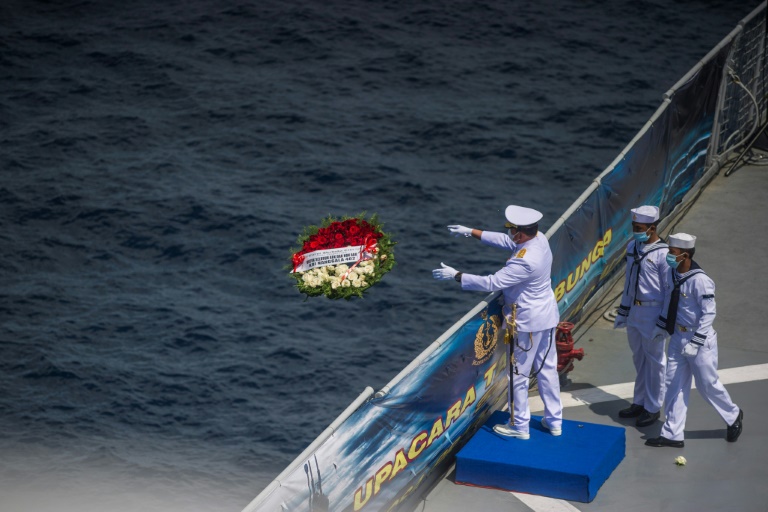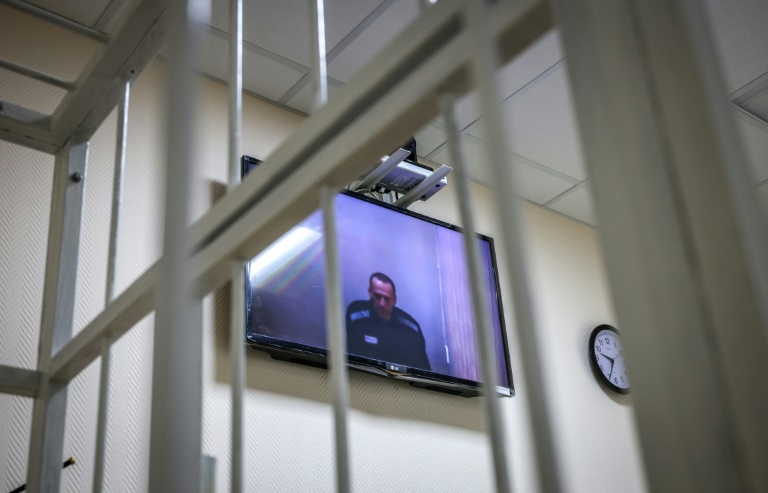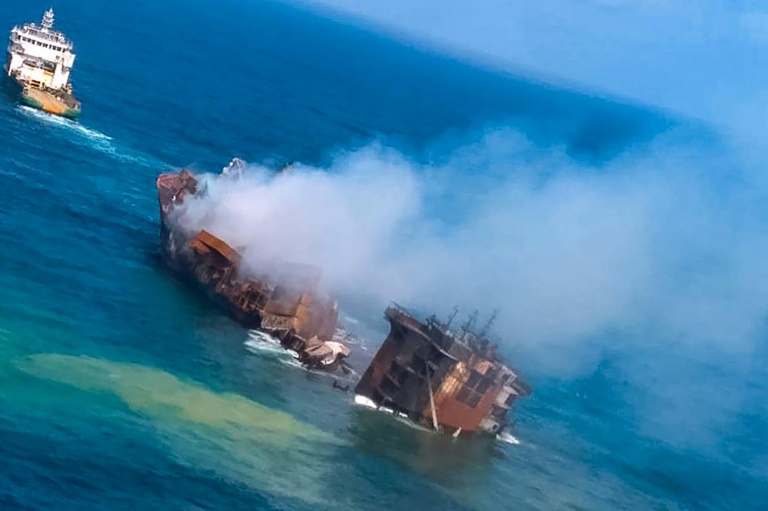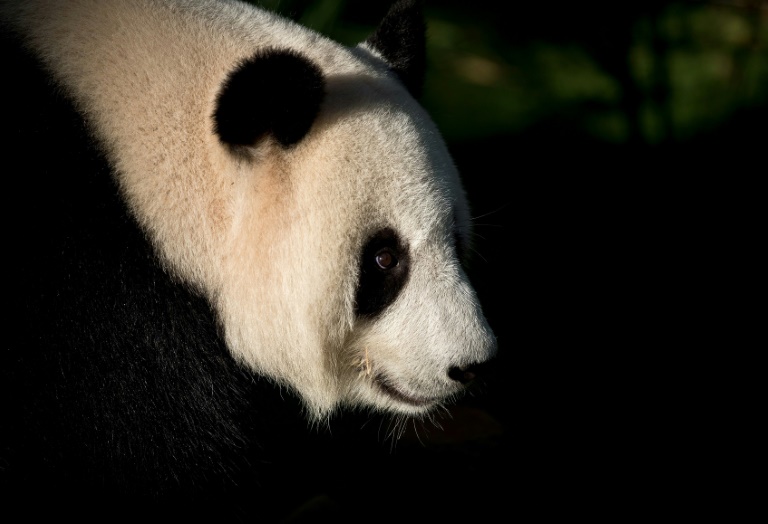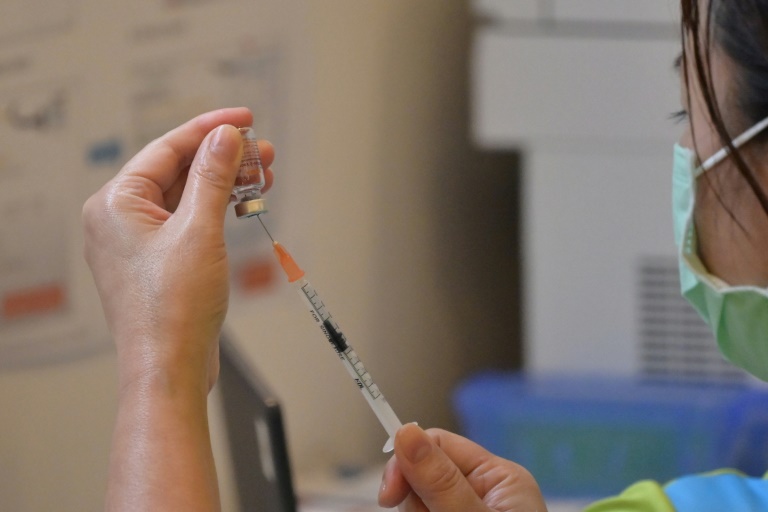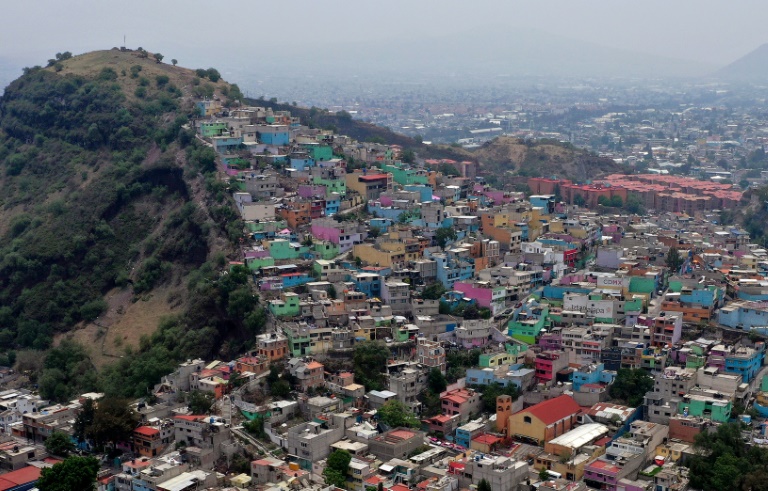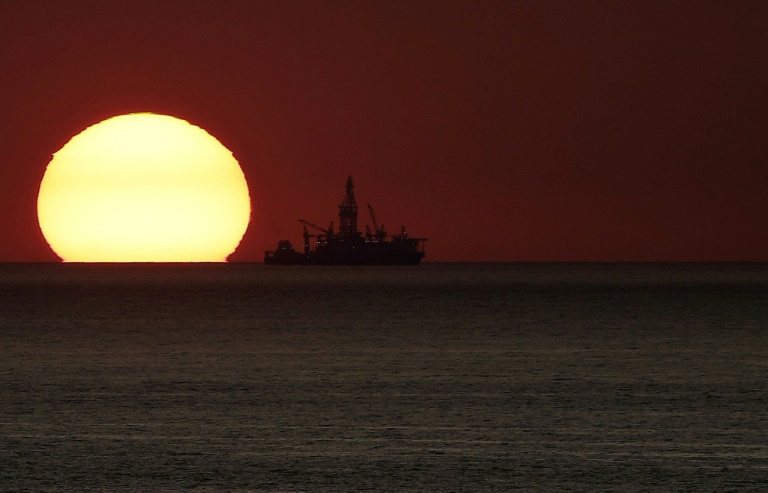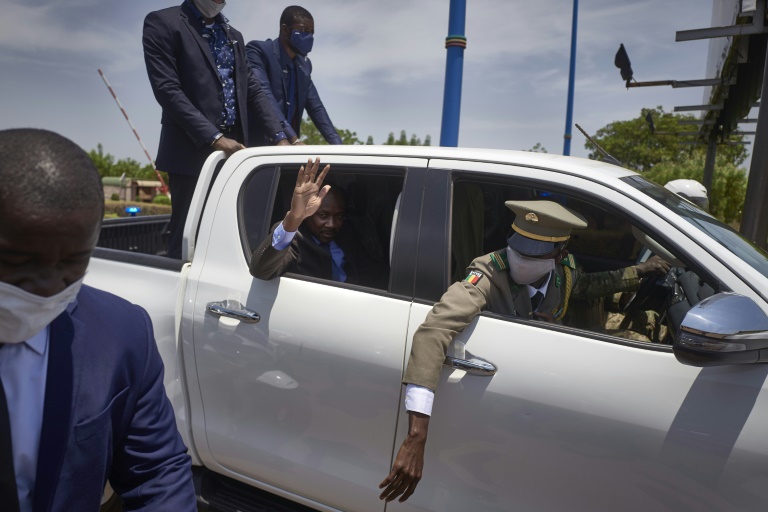Indonesia halts deep-sea salvage of sunken submarine
Indonesia has called off its bid to salvage a military submarine that sank off the coast of Bali, killing all 53 crew aboard, the navy said Wednesday.
The KRI Nanggala 402 disappeared in April while it was scheduled to take part in live torpedo training exercises.
An underwater rescue vehicle later spotted the German-built sub lying on the sea floor more than 800 metres (2,600 feet) deep, broken in several parts and confirming there was no hope of finding survivors.
Chinese salvage ships were sent to help with efforts to haul up the vessel.
But Indonesia’s military said Wednesday that it was ending the operation after a meeting with Chinese naval counterparts.
In a brief statement, the Indonesian navy said the salvage was “not an easy task” and “very risky”, without elaborating.
A month-long effort had already hauled up “important materials” from the cracked submarine, it added, but the decision to halt the operation meant there was no chance of retrieving the sailors’ bodies.
“Our family is hoping they can lift it,” Sudarmaji, the father of one crew member, told AFP on Wednesday before the announcement.
“It doesn’t matter if it takes a while or we have to ask for more help from other countries,” added the man, who goes by one name.
Earlier, the military had said high-powered magnets and air balloons were among the options to lift the submarine.
It was unclear when, or if, a report on the cause of the accident would be made public.
After the vessel disappeared, search teams spotted an oil spill where it was thought to have submerged, pointing to possible fuel tank damage.
The military has yet to offer an official explanation for the sinking of the decades-old submarine, which was delivered to Indonesia in 1981.
It has said, however, that the reconditioned vessel was seaworthy and discounted the possibility of an explosion.
The submarine may have suffered a blackout that left the crew unable to perform emergency measures as it sank to depths far below what the KRI Nanggala’s hull was built to withstand, the military has said.
The vessel’s former commander earlier told local media that a so-called internal solitary wave could have been to blame.
The natural phenomenon occurs when different sea depths come together, creating forces that could have dragged the vessel down.
The disaster was among a string of fatal submarine accidents in the past few decades.
Among the worst was the 2000 sinking of Russia’s Kursk, which was on manoeuvres in the Barents Sea when it sank with the loss of all 118 aboard. An inquiry found a torpedo had exploded, detonating all the others.
Most of its crew died instantly but some survived for several days before suffocating.

